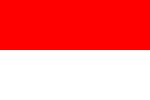Formal and Informal Leadership Power Contestation in Public Policy and Daily Politics
Kontestasi Kuasa Kepemimpinan Formal dengan Informal dalam Kebijakan Publik dan Politik Keseharian
Abstract
This article discusses the dynamics of the contestation of the power of the village head as a formal leader with Abah Olot who is the traditional leader as an informal leader in public policies and daily politics in the traditional village of Guradog, Curugbitung District, Lebak Regency, Banten Province. The issue shows the existence of power contestation between actors. This intersection results in a battle of dominative power between the two actors. Therefore, the research team traced the practice of power relations that occurred to be able to be used as a reflection to explain the problematics. In investigating this phenomenon, the research team used the “Leadership” and “Shadow State” framework which was used as an analysis tool. The research method uses descriptive qualitative method. This type of method is able to manifest descriptive data related to the subject matter in this article. As a result, this paper proves the manifestation of the informal leader's hegemonic power of formal leadership. Shadow state practices of the power of informal actors who are able to "drive" formal structural actors are manifested in the case of actualization of public policies and daily politics in the tradisional village of Guradog.
Downloads
References
Abdulrahman. (1984). Hukum Adat Menurut Perundang-Undangan Republik Indonesia. Jakarta: Cendana Press.
Darmawan, I. (2006). Peran Majemuk Kepala Adat dalam Sistem Pemerintahan Desa (Penelitian di Desa Pekurun Kecamatan Abung Tengah Kabupaten Lampung Utara). Yogyakarta: Jurusan Ilmu Pemerintahan FISIP UGM.
Dewantara, A. (2013). Peran Elit Masyarakat: Studi Kebertahanan Adat Istiadat di Kampung Adat Urug Bogor. Jurnal Al-Turas, 19(2), 89-118. doi:http://dx.doi.org/10.15408/bat.v19i1.3703
Heywood, A. (2000). Key Concepts in Politics. London: Macmillan Press LTD.
Hidayat, S. (2007). Shadow State? Dalam H. d. Nordholt, Renegotiating Boundaries: Local Politics in Post-Suharto Indonesia. Leiden: KITLV Press.
Hidayat, S., & Gismar, A. M. (2010). Good Governance Vs Shadow State dalam Penyelenggaraan Pemerintah Daerah. Jurnal Penelitian Politik LIPI, 7(1), 23-34. doi:https://doi.org/10.14203/jpp.v7i1.508
Kartono, K. (1994). Pemimpin dan Kepemimpinan. Jakarta: CV.Rajawali.
Keating, C. J. (1997). Kepemimpinan: Teori dan Pengembangannya. Penerjemah A.M. Mangunhardjana. Yogyakarta: Kanisius.
Kueng, A. V., Nasir, B., & Budiman. (2019). Sinergitas Antara Pemerintah Desa dan Tokoh adat dalam Mempertahankan Tanah Adat: Studi Kasus Desa Lahan Kecamatan Laham Kabupaten Mahakam Ulu. Jurnal Pemerintahan Integratif, 7(3), 296-305.
Marsh, D., & Stoker, G. (2010). Teori dan Metode dalam Ilmu Politik. Penerjemah Helmi Mahadi dan Shohifullah. Bandung: Nusa Media.
Moleong, L. J. (2014). Metodologi Penelitian Kualitatif. Bandung: PT Remaja Rosdakarya.
Purnama, Y. (2009). Kesenian Topeng Masyarakat Kasepuhan Guradog Lebak Banten. Jurnal Patanjala, 1(1), 27-41. doi:http://dx.doi.org/10.30959/patanjala.v1i1.227
Rostiyati, A. (2009). Peranan Pemimpin Informal pada Masyarakat Guradog. . Jurnal Patanjala, 1(2), 201-214. doi:http://dx.doi.org/10.30959/patanjala.v1i2.249
Soepomo. (1979). Bab-bab Tentang Hukum Adat. Jakarta: Pradnya Paramita.
Tobing, D. H. (2017). Pendekatan Dalam Penelitiaan Kualitatif. Bali: Universitas Udayana.
Yukl, G. (2007). Kepemimpinan dalam Organisasi. Penerjemah Budi Supriyanto. Jakarta: PT. Indeks.
Sumber Lain:
Wawancara langsung Tim Peneliti dengan Asep. Curugbitung, Kabupaten Lebak. November 2019.
Copyright (c) 2020 Yeby Ma'asan Mayrudin, Nabilla Amalia Husna, Fanny Rosye Yuliati

This work is licensed under a Creative Commons Attribution-NonCommercial-ShareAlike 4.0 International License.
- Authors retain copyright and grant the journal right of first publication with the work simultaneously licensed under a Creative Commons Atribusi-Non Commercial-Share Alike (CC BY-NC-SA).
- Authors are able to enter into separate, additional contractual arrangements for the non-exclusive distribution of the journal's published version of the work (e.g., post it to an institutional repository or publish it in a book), with an acknowledgement of its initial publication in this journal.
- Every publication (printed/electronic) are open access for educational purposes, research, and library. Other than the aims mentioned above, the editorial board is not responsible for copyright violation.

















